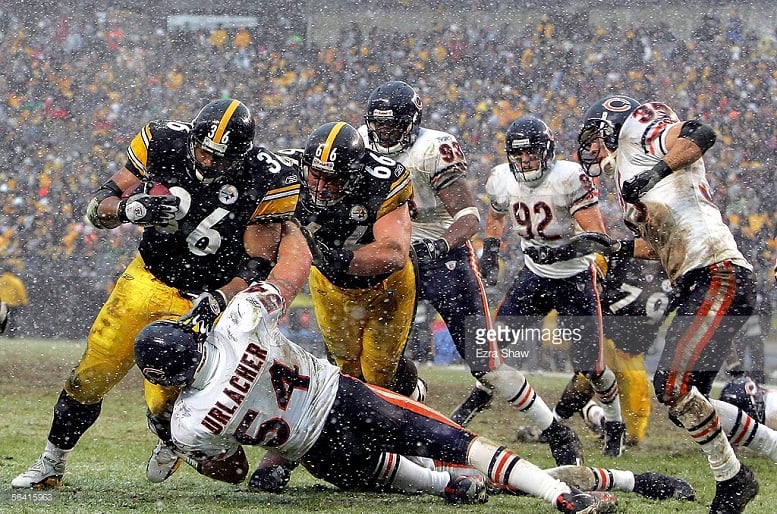There may not have been a more physical running back in our era than former Pittsburgh Steelers Super Bowl champion and Hall of Famer Jerome Bettis. Through 13 seasons in the league, he compiled over 13,000 rushing yards and 91 touchdowns on the ground, including eight 1000-yard seasons, and six consecutive—his first six in Pittsburgh.
And yet, to the best of my knowledge, he was never formally diagnosed with a concussion, though he recently told reporters while in Israel on a league-sponsored trip that “I don’t think you’ll find many guys that had a long career, played 10-plus years, that didn’t have a concussion”. And that is exactly what he had to talk about.
As part of a promotional campaign that included several other esteemed alumni, including fellow Hall of Famer Aeneas Williams, Bettis spoke to the Associated Press about the league and its treatment of concussions over the years, and he concluded that players of his generation were in some way exploited through the withholding of information.
“You definitely feel as though you were taken advantage of in a way that you weren’t given that information, and you always want to have the choice of knowing, and when that is taken away from you, you feel as though you were taken advantage of”, he told the AP.
“The problem is we don’t necessarily know all the things the league is doing. For instance, working with this company here, you don’t know if they are working with them closely to try to help solve the problem”, he added, referring to a neurotech company that was part of a tech expo the league’s caravan attended in Israel.
I have seen other sites attempt to tackle these comments by Bettis and to do so giving them more strength than was seemingly intended. But those who have followed my writing over the years will already divine where I stand.
The simple fact of the matter is that just recently the NFL has begun handing out settlements that they will be responsible for in perpetuity as a result of a successful lawsuit against them that alleged withholding of information pertaining to, among other things, the links between football and CTE, and the severity of CTE.
I think that says all that needs to be said about whether or not the league has been sufficiently forthcoming about what it knows and when it knows it. And quite frankly, they still attempt to influence concussion research in underhanded ways.
Not everybody is so cynical however. Williams, for example, who during his career played with two teammates who ultimately killed themselves and were discovered to have CTE in death (Dave Duerson and Andre Waters), sees a lot of progress in comparison to his playing days.
There has no doubt been progress, but there is still a conversation to be had about whether or not the league is doing enough, let alone all they can, to both research and educate their players about the cognitive health risks of playing football.








